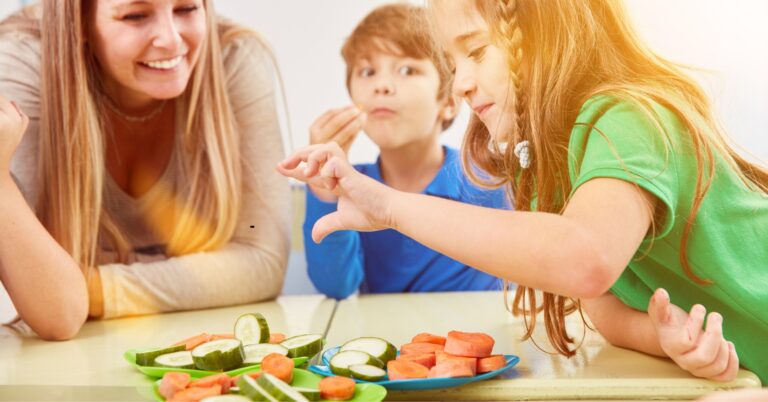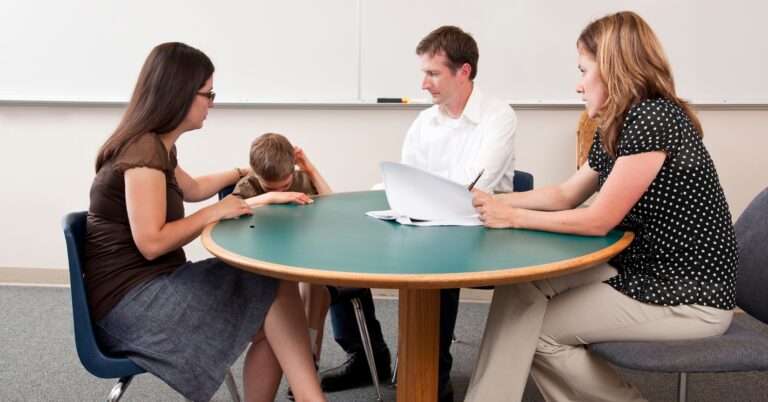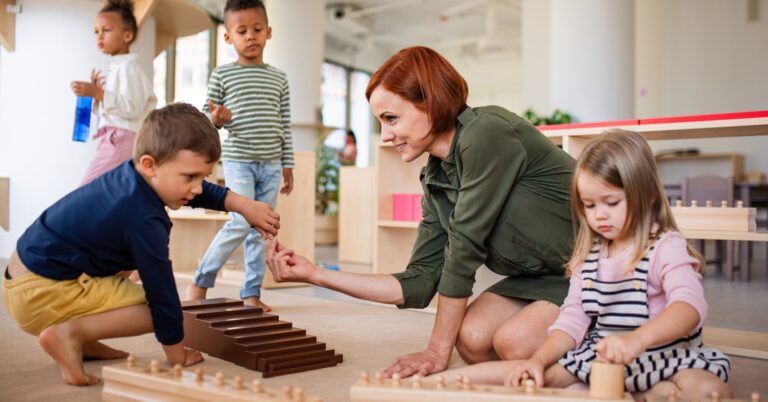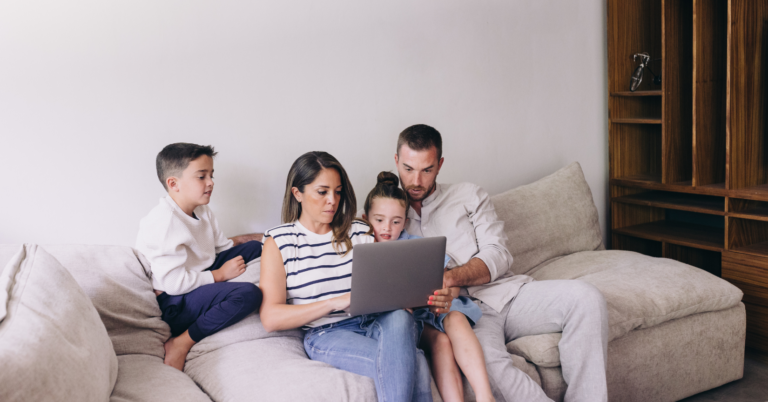Going through a divorce can be a tumultuous journey, and its impact on our children can often be the hardest part of the process. When my ex-husband and I separated, our kids took it quite hard. We realized that we needed a strategy to navigate these rough waters and help our children adjust to this new reality.
In response, we committed ourselves to figuring out co-parenting in the most positive way possible. Our goal was to create an environment that, while undoubtedly different from what our kids were used to, could still provide them with the love, stability, and support they needed.
In this endeavor, we discovered 7 specific strategies that were key in making our co-parenting journey as positive as possible for our kids. Each approach is designed to reduce conflict, foster mutual respect between parents, and prioritize the emotional well-being of our children.
1) Open communication
After a divorce, emotions can run high and communication can become strained. But my husband and I realized that if we were going to co-parent successfully, we needed to keep the lines of communication open.
This isn’t about rehashing old arguments or discussing our personal lives. It’s about focusing on our children and their needs.
We found that setting aside regular times to discuss our children’s activities, schedules, and any issues they’re facing made a world of difference. It helped us stay on the same page and provided consistency for our kids, which is crucial during such a tumultuous time.
Of course, this doesn’t mean every conversation is easy or comfortable. But it’s a necessary part of ensuring our kids feel supported and loved by both parents.
2) Setting boundaries
Navigating personal boundaries after a divorce can be tricky. In our case, my ex-husband and I had to learn how to separate our roles as co-parents from our past as a couple.
For instance, there was a time when we were newly divorced, and he came to pick up the kids for a weekend. He walked into the house as he used to when we were still together, grabbed a snack from the fridge, and hung around for a bit. It felt like old times, and it was confusing for both us and the kids.
That’s when I realized we needed clear boundaries. We sat down and agreed that while we’re both always welcome in each other’s lives because of our children, we needed to respect each other’s personal space.
Now, when he comes to pick up the kids, he waits at the door unless invited in. This small change made a huge difference in setting clear expectations and reducing confusion for our children.
Setting boundaries isn’t creating a divide. It’s understanding each other’s space and respecting it as we navigate this new phase of our relationship as co-parents.
3) Prioritizing kids’ feelings
In the whirlwind of divorce, it’s easy to get caught up in our own emotions. But it’s crucial to remember that our kids are also dealing with a lot of feelings – confusion, sadness, anger, and even guilt.
My ex-husband and I agreed from the outset that we would prioritize our children’s emotional well-being. We reassure them regularly that they are loved by both of us, and that our divorce is not their fault.
We also encourage them to express their feelings openly. Whether that’s through conversation, writing in a journal, or even drawing pictures, we want them to know it’s okay to feel and express their emotions.
4) Embracing the new normal
Divorce changes everything. The family dynamics shift, and it can feel like everything familiar has been turned upside down. But over time, my ex-husband and I learned to embrace our new normal.
We realized that while we were no longer a couple, we were still a family – just a different kind of family. Our shared love for our children didn’t change because our marital status did.
We learned to celebrate holidays, birthdays, and milestones as a family, even though we were apart. We created new traditions that honored our unique family structure.
Perhaps the most poignant moment was when our youngest graduated from kindergarten. Instead of letting our divorce overshadow the day, we both were there cheering him on, sharing proud smiles and even a few happy tears.
5) Letting go of resentment
Resentment can be a heavy burden to carry, and it can seep into every interaction, making co-parenting a battleground instead of a shared responsibility.
There were times when I held onto bitterness and anger towards my ex-husband. It clouded my judgment and made co-parenting much harder than it needed to be.
One day, while seeing the strain this was causing our children, I realized that for their sake, and mine, I had to let go. I had to forgive, not necessarily for him, but for me and our kids.
Since then, things haven’t been perfect, but they’ve been better. Letting go of resentment has allowed me to focus on what’s truly important – creating a healthy and positive environment for our children. It’s a continuous journey, but one that’s worth every step.
6) Fostering a united front
Even though we’re divorced, my ex-husband and I are still a team when it comes to our children. We learned early on that presenting a united front is crucial for effective co-parenting.
This means we make decisions together about our children’s welfare. From schooling to discipline to health matters, we discuss and agree on the best course of action.
We also support each other’s parenting roles. If one of us sets a rule or makes a decision, the other backs it up. This reinforces our children’s respect for both parents and avoids any potential “divide and conquer” tactics.
7) Putting our children first
Above all, the most important aspect of positive co-parenting is putting our children first. It means setting aside personal differences, ego, and hurt feelings to focus on what’s best for them.
In every decision we make, every conversation we have, and every interaction we share, our children’s well-being is our top priority. This approach has guided us through the toughest of times and helped us build a co-parenting relationship that not just endures, but thrives.
Because at the end of the day, our kids didn’t choose this situation. It’s up to us as parents to ensure they feel loved, secure, and supported, no matter what.
Final thoughts: It’s a journey
Co-parenting after a divorce isn’t a destination, it’s a journey. A journey marked with challenges, triumphs, setbacks, and growth.
This journey of co-parenting, as my ex-husband and I have discovered, is ultimately about creating a new kind of family. A family that may not fit the traditional mold but is nonetheless filled with love, respect, and mutual commitment to our children’s happiness.
It involves redefining what family means to us and discovering how to navigate this new reality together. It’s prioritizing our kids above all else, always.
As you reflect on this, remember that every family’s journey is unique. There’s no one-size-fits-all approach to co-parenting. What matters most is finding what works best for your family and your children. And in this journey, you’re not alone.








